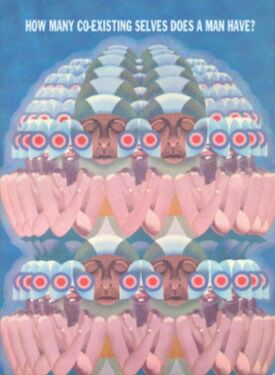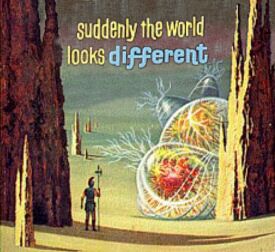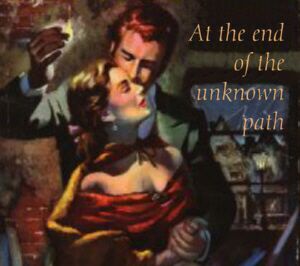 |
|
 |
|
 |
|
 |
|
 |
|
 |
 |
 |
|
 |
|
True Wisdom doesn't need to come from ancient sages and dusty scrolls to be truly true or truly wise. Everyday objects contain their own wisdom. Consider the cheesy paperback book covers of the 1940s through the 1960s, which to most observers and even usually in the conscious minds of their creators were simply crass, mindless blurts of sensationlism designed to engage the instinctive cravings of the idle shopper long enough for them to purchase the books.
It is the very lack of conscious intent, in fact, that allowed the mothers-of-pearls-of-wisdom collected here to escape from the unconscious minds of the cover artists and copywriters (who were, as far as they consciously knew, simply making a quick buck), and spill onto the covers for the world to spy, if it was lucky, out of the corner of its eye.
Some of this wisdom fit neatly into the Western, overtly prescriptive philosophical tradition, and myeck viewed this material as distinct; thus it is represented in the Aphorismisserie.
However, the very nature of the subconscious means by which this wisdom slips onto the book covers engenders a non-linear, almost zen-like state of thought, and it is this material which is collected here in the Conundriana. They are interspersed together, seemingly randomly and yet, probably not.
The wisdom here cannot be perceived if you are looking for it. Instead, try to clear your mind of conscious thoughts. In these books' heyday, of course, purchasers had the advantage of actually being able to read them, surely as effective a means of stopping thought as any.
 |
|
 |
|
 |
|
 |
|
 |
|
 |
 |
 |
|
 |
|